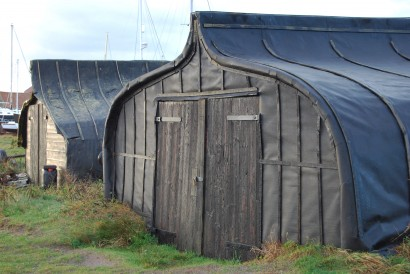Dear visitor,
Obviously, you have landed on the test site of our new project Language and Science!
We will soon take off – in the meantime check us out on our up-and-running Hungarian site: www.nyest.hu.
If you do not speak Hungarian... well.. you just go on and use Google Translate.
And if you have a comment or a suggestion, drop us a line!
Language is not only a way for people to link up and communicate, for it also can act as a divider. Teens use language to distance themselves from the older generation, while working and the middle-class people also have separate vocabularies. But how can you twist a language so that only certain people understand what you are saying? Actually, it’s quite easy. This article is about a new way to fracture French, which locals use to mark their own in-group. For “speakers,” this “language” clearly separates the “ins” from the “outs.”
Reth si eno sionver fo Enchfr angsl erew eht leslabsyl rea sedrever. – If you can’t make head or tail of the previous sentence (yes, it’s in English), the people who wrote it have done a good job because it is based on the logic of a very popular French slang called Verlan (that may be why it looks so totally weird in English).
Let's see what exactly how the words are formed. This form of French slang, called Verlan, pronounced [verlan], with a nasal [a] sort of sound for the n, is created by reversing the syllables of ordinary words.
Actually, the word Verlan itself is the result of a syllable switch: the French word l’envers (meaning: the reverse) is turned head over heels, article and all. l’en-vers → vers-l’en → verlan. When written down (and the vocal form was in use way before anyone thought to write it down), the word was merely simplified by getting rid of apostrophes and silent letters. Knowing that, it might be a tad easier to read our introductory sentence: There is one version of French slang where the syllables are reversed. But before delving more deeply into how "there" got to be "reth", let's first see how Verlan was created.

(Source: (Photograph from: Wikimedia Commons / Russ Hamer / CC BY-SA 3.0))
Cool slum lingo
The first documented Verlan words date from the 19th century. Back then, it was a secret underworld jargon. But after World War Two, it began spreading among African and Arab immigrants living in the slum districts of the big French cities (the cité, or téci in Verlan).The primary function of Verlan was much the same as that of the other slang variants: it identified users as belonging to a specific community, and in this case it underlined their rejection of middle-class oppression. Initially, speakers of standard French turned their collective noses up at this “contemptible violation” of the language.
But, given their origins, the speakers of Verlan found themselves caught with an in-between or neither-here-nor-there identity: members of this generation were no longer fluent in their ancestral languages, but neither did they feel like full and equal members of French society, socially or culturally. So they spurned both.
Today, few people are bothered by the Verlan words that pop up in rock or hip hop music, commercials, or movie dialogues. In fact, some of these words have crossed over into standard French and appear in recently published dictionaries. They are used by native Parisian college students and foreigners alike. And Verlan itself has been spotlighted by any number of sociology, linguistic, and sociolinguistic studies. But why this popularity?

(Source: (Photograph from: Wikimedia Commons / Yannpiot / GNU-FDL 1.2))
One reason is a general opposition by young people to the rigid and formalist attitude of the French Academy which rejects the adoption of foreign words or “substandard” innovations as harmful to the purity of the language. So using Verlan words has become the thing, the way to go, and yes, cool. Many people also use Verlan as a way to protest against anti-immigrant policies, by demonstrating how the dialects, the creativity, and the innovations of immigrants have become an inseparable part of contemporary French (“…and at least they’re not …shudder…"English crossovers…"). So in this day and age Verlan has become far more of a symbol of the integration and linguistic community of young people throughout France than the speech of a marginal group of outsiders. Now let's see some specific examples:
Break it up and flip it around
We have already looked at the origin of the word Verlan. But, before we forget, Verlan is essentially a spoken language and French, like English is written quite differently from the way it is pronounced. So, being practical, when a word is written down in Verlan, silent letters are omitted and contractions are contracted. For example, pourri [pronounced puri] ( meaning ‘rotten or corrupt') becomes ripou [ripu] with a single “r”.
If the word consists of only one syllable, it is simply spelled backwards (more or less) ... fou [fu:] → ouf [u:f] ('crazy, nuts'); cool [ku:l] → looc [lu:k] ('cool'); bus [bys] → sub [syb] ('bus').
There is a problem when the original word ends with an unstable [ə] sound (that sound is like the “e” at the end of “capable” or the middle “e” in “camera.”) Although nearly always silent when at the end of a French word, it is nevertheless often pronounced in the Verlan version. And vice versa, if a Verlan word were to end in a vowel, that vowel is often dropped, and the vowel left in the Verlan word becomes the [ə] (pronounced more distinctly, almost like "œ") although it was not even part of the original word. The dropping of the vowel at the end of the word is what happened in the sentence we started this article with, as there → re the → reth. Here are several examples using real French words:
femme [fam(ə)] ('woman, wife') → fa meu → meu fa → meufa → meuf [mœf] ('woman, chick')
flic [flik(ə)] ('policeman, cop') → fli keu → keu fli → keufli → keuf [kœf]
arabe [arab(ə)] ('Arab')→ a ra beu → beu ra a → beura → beur [bœʀ]
But the coolest is when some Verlan words are re-verlaned. For instance:
keuf (which we have already seen as the Verlan version of flic – cop) → feuk [fœk] (an added attraction is that it is pronounced the same as the English word fuck)
beur (that was Arab, remember…)→ reub [rœb]

(Source: (Photograph from: Wikimedia Commons / Yvan Agnesina / GNU-FDL 1.)
Coincidentally, the Verlan words for family members all begin with ’r’:
parents [paran] → rempa [ranpa] ('parents')
mère [mer] → reum [rœm] ('mother')
père [per] → reup [rœp] ('father')
soeur [sœr] → reus [rœs] ('sister')
frère [frer] → reuf [rœf] ('brother')
A few more commonly used words:
français [frans] → céfran [sefran] ('French')
café [kafe] → féca [feka] ('coffee')
mec [mek] → keum [kœm]/quèm [kuem] ('guy, dude')
bonjour [bonsueur] → jourbon [zhueurbon] ('good day’)
Black [from English] → kebla [kœbla] ('black person')
ça fait chier [sa fei sie] → ça fait ièche [sa fai ies] ('boring, annoying')
piscine [pisin] → cinepi [sinpi] ('swimming pool')
disque [disk] → skeud [skœd] ('recording, disc, album')
méchant [meshan] → chanmé [shanme] ('mean, nasty')
dingue [deng] → geudin [gœden] ('crazy, nuts')
bizarre [bizar] → zarbi [zarbi] ('strange, bizarre')
métro [metro] → tromé [trome] ('subway, metro')
voiture [vwatyr] → tourv [turv] ('car')
bagnole [ banyol ] → gnolba [nyolba] ('car, clunker')
fête [fet] → teuf [tœf] ('party')
photo [foto] → tof [tof] ('photo')
Another-ay Anguage-lay, Un-fay an-day Ames-gay
French is not the only language to turn spellings around to create new words. Need we say “Pig Latin”? Pig Latin is something similar to Verlan and of course it has nothing to do with either pigs or Latin. It is simply supposed to sound like a strange and unintelligible language to uninitiated English speakers. In Pig Latin, the consonant(s) at the beginning of a word are dropped and glued on to the end of the word along with an additional -ay ending:
stupid → upid-stay
question → estion-quay
happy → appy-hay
beast → east-bay
fun → un-fay
If a word begins with a vowel, you just add the -ay syllable, or sometimes phoneme way sound. Or, you might also put the starting vowel at the end of the word.
another → nother-way, another-ay, another-(w)ay, nother-away
about → about-way, about-ay, bout-ahay
Few Pig Latin words are commonly used in everyday English. Ones we do come across include ixnay (nix) and amscray (scram).
Since both Verlan and Pig Latin are very well-documented, the young rebels of the future have their work cut out for them. They’re going to have to come up with a secret language that’s all their own. I can hardly wait!
Sources
